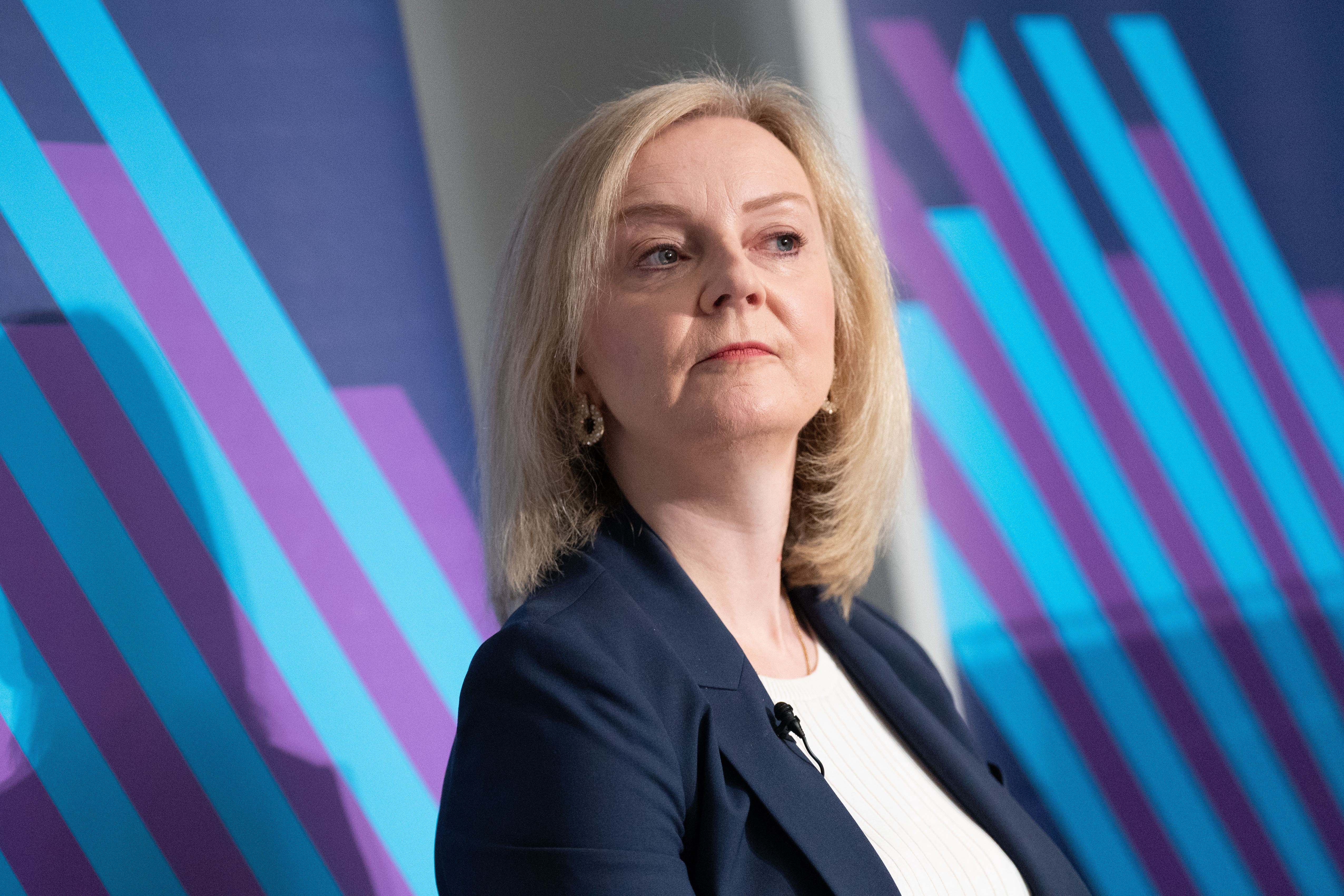Liz Truss’s honours list proves once again she is a politician without judgement
The former prime minister’s 49 days in office ended in such failure that she should have declined to make the customary nominations to the peerage, writes John Rentoul


Liz Truss was prime minister for a shorter time than George Canning, the holder of the previous record for brevity of service. And he died in office, so her 49 days should be compared not with his 119 days, but possibly with the 144 days served by his successor Viscount Goderich.
Goderich was a weak leader who confessed to King George IV “how deeply he feels his own inadequacy to discharge the duties of the situation”. The king interpreted this as a resignation and appointed the Duke of Wellington instead.
Truss’s failure was even more humiliating. Her elevation was the first test of the principle that a prime minister could be chosen by party members outside parliament and imposed on MPs who would have chosen differently. Labour came close to breaching this constitutional principle when Theresa May nearly lost to Jeremy Corbyn in 2017, but it was the Conservative Party that finally tried it out – to vividly destructive effect.
Truss was prime minister for seven weeks. Several days were taken up with the period of mourning for the Queen, and the last five days, after Truss announced her resignation on day 44, were devoted by Conservative MPs to the emergence of the candidate they should have been allowed to choose in the first place.
All in all, then, Truss’s premiership was an extraordinarily brief affair. She is the Lady Jane Grey of British prime ministers.
Which means that the convention that an outgoing prime minister may make personal nominations to the peerage should not apply. She should have been advised, in case she couldn’t work it out for herself, that it would be prudent to suggest an OBE or two and to leave it at that.
Even Tony Blair, who was prime minister for 10 years, decided against nominating resignation honours. He had had a spot of bother with peerages earlier – even if none of the providers of loans to the Labour Party whom had he nominated were actually translated to the House of Lords – and he didn’t want to give the haters any more ammunition.
But Truss persisted. Once she had submitted her nominations, it was too late for Rishi Sunak to do anything about it. The news release from No 10 on Friday night said: “The prime minister recommended this list to the King, further to advice from the former prime minister.” In other words: “I am just a post box.”
The House of Lords Appointments Commission, which vets candidates for propriety, rejected one of her nominations, Mark Littlewood, director general of the Institute of Economic Affairs – the supposedly free-market think tank that was part of her coalition of supporters. He said on GB News in November that he had “always been persona non grata in many corridors of power” and had predicted that his nomination would be rejected.
“The Bible says the Lord works in mysterious ways. Trust me, the House of Lords works in even more mysterious ways,” he said.
Despite that embarrassment – and rumours that other nominees had turned down Truss’s offer of a peerage because of the reputational damage associated with accepting – she still persisted, and so Matthew Elliott, Jon Moynihan and Ruth Porter will take their places on the red benches shortly.
An unembarrassable source close to Truss argued that these three peerages and eight lesser honours reflect much longer public service than the fleeting 49 days in Downing Street: “Her list seeks to recognise her most long-standing aides, advisers and allies who provided invaluable support during her decade in ministerial office.”
This is a new constitutional principle: that a decade of ministerial office, even without any visible achievements, entitles someone to nominate members of the House of Lords.
If Truss had been better advised, she could have earned some sympathy for what must have been a difficult and traumatic experience. Instead, she has given interviews and written articles essentially saying that her unfunded tax cuts were right, and she has persisted in handing out rewards to her supporters as if hardly being prime minister at all entitled her to the supposed spoils of office.
Benjamin Disraeli referred to Goderich, after his tearful departure from office, as “a transient and embarrassed phantom”. Truss was even more transient, and ought to be even more embarrassed. She was unsuccessful as prime minister because she has no judgement, and the farce of her nominations for peerages only confirms it.
Join our commenting forum
Join thought-provoking conversations, follow other Independent readers and see their replies
Comments
Bookmark popover
Removed from bookmarks